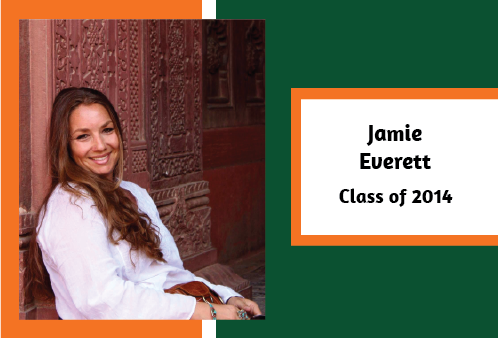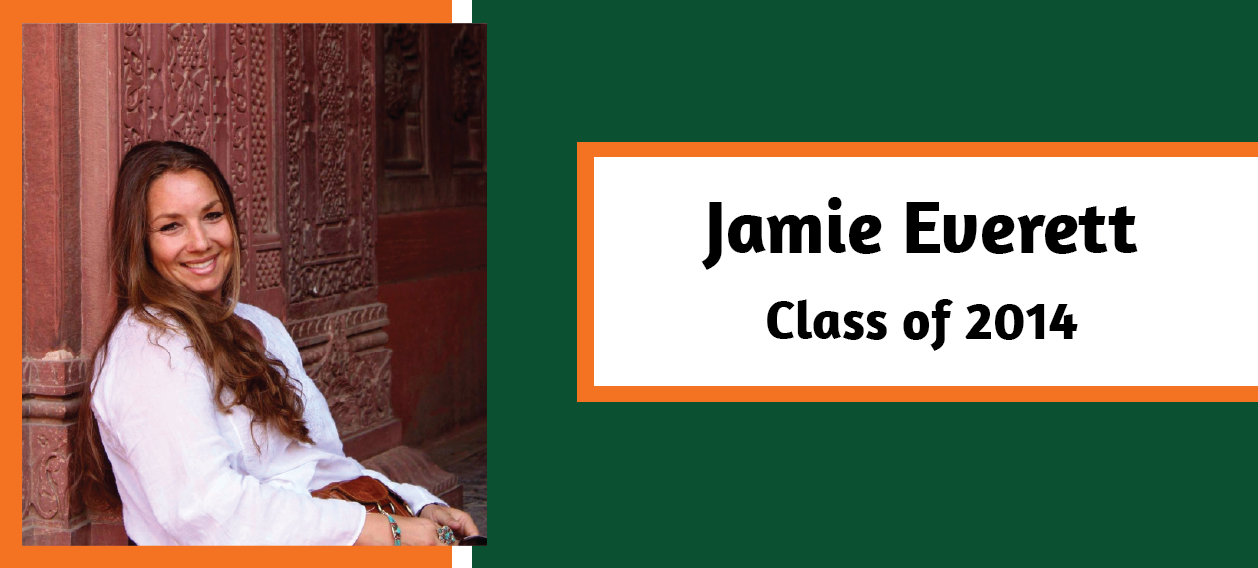Jamie Everett graduated with her Masters of Arts in International Administration in the Spring of 2014 and currently works as the Executive Director for Refugee Assistance Alliance, a local Miami non-profit serving refugee families. RAA serves over 90 refugees, most of whom escaped the Syrian Civil War. Everett has prior experience working with refugee women for the International Rescue Committee’s Women’s Empowerment and Protection program. Her interest in international and domestic non-profit work stems from her commitment to community well-being and fostering positive social change.
Her career began when she lived in the Brazilian Amazon for several years, where she worked alongside indigenous women to create a micro-enterprise which still continues today. Everett pursued the MAIA degree to help her better understand how to work cross-culturally, navigate differing socio-economic spaces, and build a career that enhanced human rights, gender equality and social inclusion. She completed her MAIA practicum on the barriers to indigenous empowerment and integration among the Karitiana people group in Brazil. Shortly after this, Everett circumnavigated the globe on a Semester at Sea ship with her husband, 6 year-old son and 600 undergrads (some from UM), where she mentored students and led Impact Travel Excursions in places like China, India, Myanmar (Burma) and South Africa.
She currently serves on the Board of Directors for Set Her Free, a Ugandan non-profit which rescues, shelters and educates girls. Other than her MAIA degree, where she followed the Poverty and Development Track, Everett holds a B.A. from the University of Pittsburgh, and an M.A. in Theology, where she studied Liberation and Feminist Theologies. She also teaches Spinning and fitness classes at the UM Wellness Center, where you can find her on weekend mornings.





